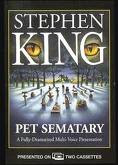 Written by: Kôji Suzuki.
Written by: Kôji Suzuki.
Directed by: Jōji Iida
Spiral had big shoes to fill. Both Hideo Nakata's and Gore Verbinski's versions of The Ring will be immortalised in horror history for popularising Eastern horror in the West, reinvigorating the horror genre after a fairly lacklustre decade, creating one of the scariest moments in film (do I really have to mention it's the part where Sadaku crawls out of the TV at Ryūji?) and achieving the prestigious title of one of my favourite movies ever. Spiral was never going to exceed that. I know that. And reading the book / watching the film, I was painfully aware that I would have to separate my feeling for the Ring from this story to fairly judge it on its own merits. Despite this, it is still difficult for me to admit that Spiral did not meet my deliberately lowered expectations.
The copy of Spiral (the book) I own describes Kôji Suzuki as "Haruki Murakami blended with Stephen King" on the front cover. This leads me to believe that the journalist quoted here has either never read Stephen King and Haruki Murakami, or instead has never read Kôji Suzuki and just assumed he is Haruki Murakami blended with Stephen King because he is both Japanese and a horror author. My largest qualm about this comparison is Kôji Suzuki's contempt for excessive characterisation. He tends to jump into the crux of the story, attempting to short-cut sympathy for characters by having them deal with some traumatic event or memory, rather than create rich backstories. This is a completely legitimate strategy in films: you don't have long to get the audience on your side. However, in a novel, without those extra details about the character and their motivation, I felt like I was missing a piece of the picture. I should also mention that I read the English version of Spiral, so I can't say with complete conviction that things were lost in translation.
Dr Ando is the tragic protagonist of this story. In both the film and book, he is still dealing with the drowning of his son which he blames himself for, living alone and working as a pathologist who performs autopsies. As I mentioned before, tragic, dark characters are good for audience sympathy but one of the biggest problems is that Ando was made TOO dark and tragic. He lacked any readily identifiable motivation. He contemplates suicide several times, razor at the wrists ready, but never follows through. And I never knew why. His desire to stay alive is slightly clearer in the book, which describes his lust towards his dead friends' lover and later her 'sister.' This did a lot to hurt the sympathy created for him at the start of the narrative. He's tortured by his son's death, but not tortured enough to stop him from thinking with his dick. Compare this to Reiko Asakawa in the first movie (I know I said I wouldn't compare the two, I'm sorry), who is first motivated by her own inherit curiosity and a sense of duty, then the stakes are raised again when her own life is threatened, then again when her son is put at risk. Ando seems to have nothing to lose except the chance to get laid.
The other horror faux pas it commits is explaining loose ends from its predecessor. Spiral demystifies the Ring mythos so much, I'm almost tempted to call it science fiction rather than horror. Supernatural horror needs a sense of mystery and the unexplained, it prevents the horror from becoming familiar and killing the suspense.
If I had to pick one over the other, I'd say the book was slightly better than the film. The detail it could go into just made it less hokey. The code breaking sections of the book were actually really interesting, but could not have possibly be translated to the film, meaning the film missed out on those satisfying "a-ha" moments when Ando cracked them (note: 'a-ha' as in an exclamation of working something out, not the Norwegian pop band. The latter are rarely praised for their contributions to the horror genre). Exposition in Rasen was pretty laboured, resulting in some awkward dialogue and a few of the characters having psychic abilities in order for the story to foreshadow necessary plot reveals. The film did have some cool moments, like Ando's hallucinations and nightmare sequences, but these were spoilt by poor characters, an ill-conceived plot and a vanilla twist ending.
Hopefully, I will get around to watching Hideo Nakata's original version Ring 2 in the next few weeks. While I wasn't a fan of his American version, his competency as a film-maker is abundantly evident, and it surely can't be as disappointing as the legitimate sequel to Suzuki's Ring.
Book: 2 out of 5
Film: 1.5 out of 5




